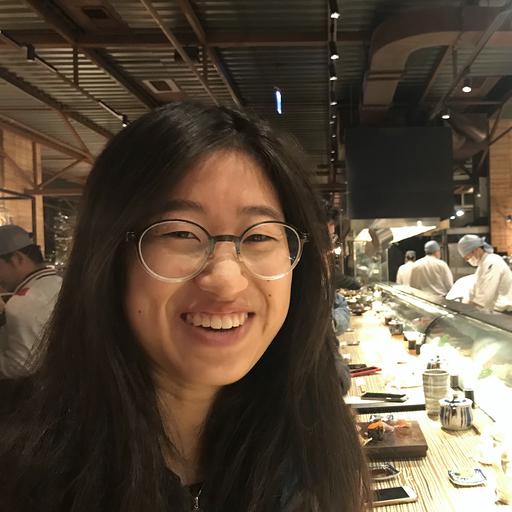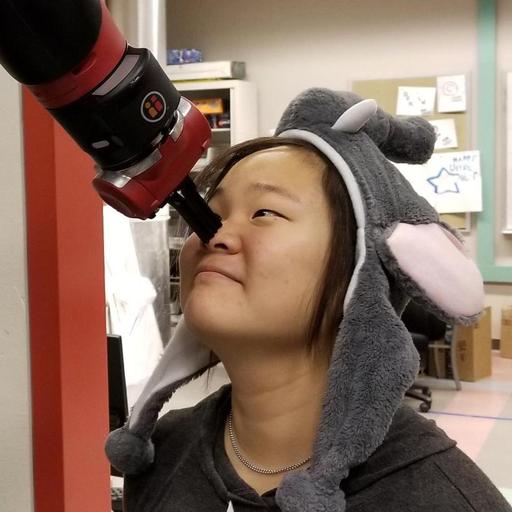EECS16B | Designing Information Devices and Systems II
Spring 2020
Schedule
This schedule is tentative and subject to change.(Please scroll horizontally if you're viewing this on your phone.)
| Week | Date | Lecture Topic | Section | Lab | Homework |
|---|---|---|---|---|---|
|
1 |
01/21 Tu |
Syllabus & 16A Review
(Webcast) (Notes) (Master Lecture Reader) |
No Section (MLK Day)
|
Syllabus Week |
Homework 0
Due 01/29 We (PDF) (Sols) (Self Grade) |
| 01/23 Th |
Computing: Transistors, Logic, and Differential Equations
(Webcast) (Slides) (Notes) |
16A Review
|
|||
|
2 |
01/28 Tu |
Introduction to Transient Analysis
(Webcast) (Notes) |
Section 2A
(Dis) (Ans) |
Lab 1: Debugging (Syllabus) (Lab) |
Homework 1
Due 02/05 We (PDF) (Sols) (Self Grade) |
| 01/30 Th |
Differential Equations
(Webcast) (Notes) |
Section 2B
(Dis) (Ans) |
|||
|
3 |
02/04 Tu |
Vector Differential Equations and Second Order Circuits
(Webcast) (Notes) (Note 3 [fa19]) |
Section 3A
(Dis) (Ans) |
Lab 2: DAC / ADC (Lab) |
Homework 2
Due 02/12 We (PDF) (iPy) (Sols) (Self Grade) |
| 02/06 Th |
Diagonalization to Solve Vector Differential Equations
(Webcast) (Notes) (Note j [fa19]) |
Section 3B
(Dis) (Ans) |
|||
|
4 |
02/11 Tu |
Inductors and RLC Circuits
(Webcast) (Notes) |
Section 4A
(Dis) (Ans) |
Lab 3: Mic Board (Lab) |
Homework 3
Due 02/19 We (PDF) (iPy) (Sols) (Self Grade) |
| 02/13 Th |
Phasors
(Webcast) (Notes) |
Section 4B
(Dis) (Ans) |
|||
|
5 |
02/18 Tu |
Frequency Response and Bode Plots
(Webcast) (Notes) |
No Section
|
Lab 4: Color Organ I (Lab) |
Homework 4
Due 02/26 We (PDF) (Sols) (Self Grade) |
| 02/20 Th |
Frequency Response of RLC Circuits
(Webcast) (Notes) |
Section 5B
(Dis) (Ans) |
|||
|
6 |
02/25 Tu |
Control and Robotics: State Space Models
(Webcast) (Notes) |
Section 6A
(Dis) (Ans) |
Lab 5: Color Organ II (Lab) |
Homework 5
Optional (PDF) (Sols) |
| 02/27 Th |
Equilibrium Points and Linearization
(Webcast) (Notes) |
Section 6B
(Dis) (Ans) |
|||
|
7 Midterm 3/4 8–10pm(Exam) |
03/03 Tu |
Linearization and Discrete-Time Systems
(Webcast) (Notes) |
No Section
|
Project Part 1: Circuits (Lab) (SIXT33N Instructions) |
Homework 6
Due 03/11 We (PDF) (Sols) (Self Grade) Midterm 1 Redo (Exam) (Sols) |
| 03/05 Th |
Discretization of Continuous-Time Models
(Webcast) (Notes) |
No Section
|
|||
|
8 |
03/10 Tu |
Controllability
(Webcast) (Notes) |
Section 8A
(Dis) (Ans) |
Buffer Days |
Homework 7
Due 03/18 We (PDF) (Sols) (Self Grade) |
| 03/12 Th |
Learning: System Identification
(Webcast) (Notes) |
Section 8B
(Dis) (Ans) |
|||
|
9 |
03/17 Tu |
SVD
(Zoom-cast) (Mirror) (Notes) |
Section 9A
(Dis) (Ans) |
Project Part 2: System ID (Lab) (DataHub) |
Homework 8
Due 04/01 We (PDF) (Sols) (Self Grade) |
| 03/19 Th |
SVD Continued
(Zoom-cast) (Mirror) (Notes) |
Section 9B
(Dis) (Ans) |
|||
|
10 |
03/24 Tu |
Spring Break
|
No Section
|
Spring Break |
|
| 03/26 Th |
Spring Break
|
No Section
|
|||
|
11 |
03/31 Tu |
SVD Continued
(Zoom-cast) (Mirror) (Notes) |
Section 11A
(Dis) (Ans) |
Project Part 3: Closed-Loop Control (Lab) (DataHub) |
Homework 9
Due 04/08 We (PDF) (iPy) (Sols) (iPy Sols) (Self Grade) |
| 04/02 Th |
Applications of SVD
(Zoom-cast) (Mirror) (Notes) |
Section 11B
(Dis) (Ans) |
|||
|
12 Midterm 4/9 8–10pm |
04/07 Tu |
Stability
(Zoom-cast) (Mirror) (Notes) |
Section 12A
(Dis) (Ans) |
Project Part 4: SVD/PCA (Lab) (DataHub) |
Homework 10
Due 04/15 We (PDF) (iPy) (Sols) (iPy Sols) (Self Grade) |
| 04/09 Th |
Stability
(Zoom-cast) (Notes) |
Section 12B
|
|||
|
13 |
04/14 Tu |
Feedback
(Zoom-cast (g7!ETy68)) (Notes) |
Section 13A
(Dis) (Ans) |
Buffer Days |
Homework 11
Due 04/22 We (PDF) (Sols) (Self Grade) Midterm 2 Redo (Exam) |
| 04/16 Th |
Feedback
(Zoom-cast (S4*gH=tG)) (Notes) |
Section 13B
(Dis) (Ans) |
|||
|
14 |
04/21 Tu |
Upper Triangularization
(Zoom-cast (6s?O&%1y)) (Notes) |
Section 14A
(Dis) (Ans) |
Project Part 5: Advanced Controls (Lab) (DataHub) |
Homework 12
Optional (PDF) (Sols) (Self Grade) |
| 04/23 Th |
Q&A with Professors
|
Section 14B
(Dis) (Ans) |
|||
|
15 |
04/28 Tu |
Final Exam A
|
Project Part 6: Integration |
||
| 04/30 Th |
Q&A with Professors
|
||||
|
16 |
RRR Week
|
RRR Week: Finals Week |
|||
|
17 |
Final Examinations
|
|
Calendar
Discussion
Please note the colors for discussion sections:
Lab
OH and HW Party
Resources
Piazza: ask questions here.Homework Practice: practice homework questions.
Lab
Spring '20 Notes
Fall '19 Notes
- Note 1 [fa19]
- Note 2 [fa19]
- Note 3 [fa19]
- Note j [fa19]
- Note 4 [fa19]
- Note 5 [fa19]
- Note 7 [fa19]
- Note 8 [fa19]
- Note 9 [fa19]
- Note 10 [fa19]
- Note 11 [fa19]
- Note 12 [fa19]
- Note 13 [fa19]
- Note 14 [fa19]
- Note 15 [fa19]
- Note 16 [fa19]
- Note 17 [fa19]
- Note 18 [fa19]
- Note 19 [fa19]
Controls
Course Staff
Instructors
GSIs
Click to reveal bios (if they have one)!
Ramsey Mardini
Head Admin
ramseymardini@

Nick Nolan
Head Admin
nick.nolan@

Mikaela Frichtel
Head Lab
mfrichtel@

Mia Mirkovic
Head Lab, Content
miamirkovic@

Taejin Hwang
Admin, Discussion
taejin@

Titan Yuan
Discussion
titan@

Son Tran
Discussion
sontran@

Marie Barr-Ramsey
Discussion
mariebarr@

Eric Li
Discussion
esli@

Maruf Ahmed
Discussion, Content
maruf_ahmed@

Mauricio Bustamante
Discussion, Content
mbustamante@

Jonathan Ting
Discussion, Content
jkting4@

Shreyas Krishnaswamy
Discussion
shrekris@

Justin Yu
Discussion
justinvyu@

Akash Velu
Discussion
akashvelu@

Maxwell Chen
Discussion
maxhchen@

Sidney Buchbinder
Discussion
buchbinder@

Ashwin Vangipuram
Discussion
avangipuram@

Gaoyue(Kathy) Zhou
Discussion
zhougy_99@

Simon Kuang
Content
simontheflutist@

Ricky Liou
Content
rliou92@

Raymond Gu
Lab
raymongdu1998@

Kourosh Hakhamaneshi
Lab
kourosh_hakhamaneshi@

Kaitlyn Chan
Lab
kaitlynjchan@

Vin Ashwin Ramamurti
Lab
vin.ramamurti@

Jove Yuan
Lab
jove@

Jackson Paddock
Lab
jackson.paddock@

Steven Lu
Lab
stevenl@

Alyssa Huang
Lab
alyssahuang@

Rafael Limgenco Calleja
Lab
rafael.calleja@

Caleb Kuo
Lab
calebkuo@

Victor Lee
Lab
vklee88@

J. Stella Seo
Lab
seo.jysk@

Sumer Kohli
Software
sumer.kohli@

Neelesh Ramachandran
Software
neelesh.r@
Please add berkeley.edu to the end of all emails
Policies
Course Info
The EECS 16AB series (Designing Information Devices and Systems) is a pair of introductory-level courses introducing students to EECS. The courses have a particular emphasis on how to build and understand systems interacting with the world from an informational point of view. Mathematical modeling is an important theme throughout these courses, and students will learn many conceptual tools along the way. These concepts are rooted in specific application domains. Students should understand why they are learning something.
An important part of being a successful engineer is being able to identify the important and relevant structure in a complex problem while ignoring minor issues. EECS 16A focuses on modeling as abstraction: how can we see the relevant underlying structure in a problem? It introduces the basics of linear modeling, largely from a "static" and deterministic point of view.
EECS 16B deepens the understanding of linear modeling and introduces dynamics and control, along with additional applications. Finally, EECS 70, (which can be thought of as the third course in this sequence – except without any labs), introduces additional discrete structures for modeling problems, and brings in probability.
Grade Breakdown
Our objective is to help you become the best engineer you can be, and grades are not everything. The various components of the class: homework, labs and exams are designed explicitly with this in mind. Every challenge is a growth opportunity. You will have the opportunity to gain points in the course through completing your homework, attending labs as well as through the exams.
This course is not graded on a curve. We will set absolute thresholds for performance that will map to grade boundaries. We encourage you to discuss the course material with each other and teach each other new ideas and concepts that you learn. Teaching the material is one of the best ways to learn, so discussing course material with colleagues in the class is a win-win situation for everyone. Grades are not everything, far from it, but that said, here is the breakdown for grading for this class.
| Homework | 40 points 45 if no lab |
| Lab and Project (if you have lab) | 45 points |
| Midterm 1 | 55 points 65 if no lab |
| Midterm 2 | 55 points 65 if no lab |
| Final | 105 points 125 if no lab |
In the event that the instructors deem that a change needs to be made for a given exam, then you will be told where the grade boundaries are for that exam and how to adjust your score on the exam to get your points on the above scale.
Notice that you can get many points by being regular with your homework and the lab.
Grading Scale
This course is not curved. We define the following grading scale (in percentages):
| A+ | [100+] | A | [93+) | A- | [90+) |
|---|---|---|---|---|---|
| B+ | [84+) | B | [75+) | B- | [68+) |
| C+ | [65+) | C | [62+) | C- | [58+) |
| D+ | [57+) | D | [55+) | D- | [53+) |
| F | [0-, 53-) |
Exam Clobbering
This course spans a fairly deep set of ideas and concepts within a short period of time, and hence sustained and consistent effort and investment are critical to your success in this class. Similarly, by far the most common stressful mode we have observed in previous students who struggled and/or failed this class was attempting to do the bare minimum in general and then catch up/cram right before the exams.
In order to formally encourage all of you to maintain the sustained effort that we have observed to be critical to success, we will be adopting a new policy regarding exam clobbering, participation, and effort. Specifically, for students who (1) complete an optional midterm redo and (2) perform better on the final than on the relevant midterm, we will provide the opportunity to clobber a midterm.
If you qualify for the clobber (i.e. (1) and (2)), you may replace your lowest midterm score with your scaled score on the final exam.
Homework Party
Homework parties are your chance to meet and interact with other students, while also having the chance to get help from GSIs and Faculty. This is your chance to have a social experience as part of the class. We expect students to treat each other with respect during homework parties as well as during all other parts of the class – including interactions on Piazza, discussion and office hours. Remember that each of you is coming into a class with different experiences and backgrounds – use this as an opportunity to learn from one another.
Homework Party will be held on Mondays from 9-11 AM and Tuesdays from 2-5 PM at the Wozniak Lounge in Soda.
Students are expected to help each other out, and if desired, form ad-hoc "pickup" homework groups in the style of a pickup basketball game. We highly encourage students to attend homework party.
Homework Submission
Homeworks are due on Wednesday night at 11:59 PM. You need to turn in a .pdf file consisting of your written-up solutions that also includes an attached pdf "printout" of your .ipynb code on Gradescope. Any homework submissions that are turned in without the code “printout” (or screenshot) attached will receive a zero on the coded ipython notebook portions of the homework. Any problems without pages selected will receive zero credit. If you have any questions about the format of a homework submission, please go to office hours or homework party.
You will have the opportunity to resubmit your homework after homework solutions are released to get makeup credit. See below for details.
Homework Grading - Self-Grading
The point of homework in this class is for you to learn the material. To help you in doing this each student will grade their own homework. After the HW deadline, official solutions will be posted online. You will then be expected to read them and enter your own scores and comments for every part of every problem in the homework on a simple coarse scale:
| Score | Reason |
|---|---|
| 0 | Didn't attempt or very very wrong |
| 2 | Got started and made some progress, but went off in the wrong direction or with no clear direction |
| 5 | Right direction and got half-way there |
| 8 | Mostly right but a minor thing missing or wrong |
| 10 | 100% correct |
Note: You must justify self-grades of 2, 5, or 8 with a comment. Grades of 0 and 10 do not need to be justified. If you are really confused about how to grade a particular problem, you should post on Piazza. This is not supposed to be a stressful process.
Your self-grades will be due on the Monday following the homework deadline at 11:59 PM sharp. We will accept late self-grades up to a week after the original homework deadline for 65% credit on the associated homework assignment. If you don't enter a proper grade by this deadline, you are giving yourself a zero on that assignment. Merely doing the homework is not enough, you must do the homework; turn it in on time; read the solutions; do the self-grade; and turn it in on time. Unless all of these steps are done, you will get a zero for that assignment.
We will automatically drop the lowest 2 homework scores from your final grade calculation. These drops are meant for emergencies. If you use these drops half-way into the semester, and request another, we cannot help you.
Course readers are going to be grading and sending you occasional comments. Because we have reader grades, we will catch any attempts at trying to inflate your own scores. This will be considered cheating and is definitely not worth the risk. Your own scores will be used in computing your final grade for the course, adjusted by taking into account reader scores so that everyone is fairly graded effectively on the same scale. For example, if we notice that you tend to give yourself 5s on questions where readers looking at your homeworks tend to give you 8s, we will apply an upward correction to adjust.
Reader grades will be released on Gradescope about one week after the homework deadline. Readers grade questions either on a “coarse” or “fine” scale. Coarsely graded questions are based on effort and are worth one point. If you are given one point you are given the same score you gave yourself for all associated parts (with adjustment from self inflation/deflation) and if you are given a zero you are given zero points for all associated parts of that question no matter the self grade. Finely graded question parts are worth a total of 10 points and are graded using the same self-grading rubric above. Homework regrade requests are typically due on Gradescope within 72 hours of reader grades being released. If a regrade request is submitted for a part of a question on the homework, the grader reserves the right to regrade the entire homework and could potentially take points off.
Just like we encourage you to use a study group for doing your homework, we strongly encourage you to have others help you in grading your assignments while you help grade theirs.
If you have any questions, please ask on Piazza.
Homework Resbmission
Again, the point of homework in this class is to help you learn. We understand that sometimes work from other classes, midterms or your personal life can come in the way of making a homework deadline. For this reason we will allow you to resubmit your homework for 30% credit.
Homework resubmissions will be due along with the self-grades, so they will be due by 11:59pm Monday night. If you choose to resubmit your homework, you must submit two sets of self-grades, one for the first submission and one for the resubmission. For the resubmission regrade all questions based off the better of your original submission and your resubmission (i.e. if you originally got a problem completely correct on your original submission, give yourself a 10 on the resubmission self grades even though you didn’t redo it). We will apply a 30% correction.
You need to turn in a .pdf file consisting of your written-up solutions that also includes an attached pdf "printout" of your .ipynb code on Gradescope. Any homework submissions that are turned in without the code "printout" (or screenshot) attached will receive a zero on the coded ipython notebook portions of the homework. Any problems without pages selected will receive zero credit. If you have any questions about the format of a homework submission, please post on Piazza or go to office hours or homework party.
What does 30% credit mean? Let us say you only were able to get half-way through a problem during the first submission. You submitted your homework on Monday, and while going through the solutions you understood how to do the whole problem. Your self-grade for your first submission would be a 5/10. However, you can resubmit the homework problem with a fully correct solution and receive 30% of the remaining points as extra points, i.e. (10-5) * 30/100 = 1.5 extra points, and so your score for the problem would go from 5 points to 6.5 points.
Homework Effort Policy
Because the point of homework in this class is to help you learn, not to punish you for making small mistakes, your final score (after resubmission and any other corrections are applied) on any homework will be min(100%, 1.25 x score %), so any score of 80% or above becomes a 100%.
Discussion Section Policies
Note that while discussion (like lecture) is a mandatory part of the course, we will not be taking attendance in either discussion or lecture.
Exam Policies
There are two midterms and one final. The midterms will be on Wednesday, March 4th from 8-10 PM and Thursday, April 9th from 8-10 PM. The final will be held on Thursday, May 14th from 8-11 AM. Makeup exams will not be scheduled.
Please plan for exams at these times. In case of an emergency on exam day, please email the head TAs as soon as possible and provide details of the issue as well as a contact phone number. Emergency exam conflicts will be handled on a case-by-case basis. Exam conflicts originating from a lecture conflict will not be accommodated.
On exam day, you must bring your Cal student ID to your exam location. Locations and logistics will be posted on Piazza closer to the exam dates. If you do not take your exam in the correct location, a large penalty will be applied to your exam score. Additionally, regrade requests on Gradescope are typically due within a week of exams being released on Gradescope. Late regrade requests will not be considered. If a regrade request is submitted for a part of a question on the exam, the grader reserves the right to regrade the entire exam and could potentially take points off.
Exceptions
Any requests for exceptions should be emailed to the head TAs.
Email the exception request out as soon as possible. Exceptions will be handled on a case-by-case basis. Since there are two homework drops, missing homework is rarely excused. Examples of situations that merit an exception are medical emergencies and family emergencies. It will be easier for us to grant an exception if you have a doctor’s note or other documentation.
Course Communication
The instructors and TAs will post announcements, clarifications, hints, etc. on Piazza. Hence you must check the EECS16B Piazza page frequently throughout the term. (You should already have access to the EECS16B Spring 2020 forum. If you do not, please let us know.)
If you have a question, your best option is to post on Piazza. The staff (instructors and TAs) will check the forum regularly, and if you use the forum, other students will be able to help you too. When using the forum, please avoid off-topic discussions, and please do not post answers to homework questions before the homework is due. Also, always look for a convenient category to post the question to (for example, each homework will have its own category, so please post there). That will ensure you get the answer faster.
If your question is personal or not of interest to other students, you may mark your question as private on Piazza, so only the instructors will see it. If you wish to talk with one of us individually, you are welcome to come to our office hours. Please reserve email for the questions you can't get answered in office hours, in discussion sections, or through the forum.
For any exceptions that are of a personal nature, please contact the head TAs. Technical and homework questions are best resolved in homework party and during office hours.
Collaboration
We encourage you to work on homework problems in study groups of two to four people; however, you must always write up the solutions on your own. Similarly, you may use books or online resources to help solve homework problems, but you must always credit all such sources in your write up, and you must never copy material verbatim. Using previous EECS16B homework, exam, and lab solutions is strictly prohibited, and will be considered academic dishonesty. This is not how you want to start your career as an engineer.
We expect that most students can distinguish between helping other students and cheating. Explaining the meaning of a question, discussing a way of approaching a solution, or collaboratively exploring how to solve a problem within your group is an interaction that we encourage strongly. But you should write your homework solution strictly by yourself so that your hands and eyes can help you internalize the subject matter. You should acknowledge everyone whom you have worked with, or who has given you any significant ideas about the homework. This is good scholarly conduct.
Don't Be Afraid to Ask For Help
Are you struggling? Please come talk with us! The earlier we learn about your struggles, the more likely it is that we can help you. Waiting until right before an exam or the last few weeks of the semester to let us know about your problems is not an effective strategy - the later it is, the less we will be able to help you.
Even if you are convinced that you are the only person in the class who is struggling, please overcome any feelings of embarrassment or guilt, and come ask for help as soon as you need it – we can almost guarantee you're not the only person who feels this way. Don't hesitate to ask us for help – we really do care that you thrive! You can email the head TAs, or email / talk to any TA at any time -- we’re happy to help.
Advice
The following tips are offered based on our experience.
Do the homeworks! The homeworks are explicitly designed to help you to learn the material as you go along. There is usually a strong correlation between homework scores and final grades in the class.
Keep up with lectures! Discussion sections, labs and homeworks all touch on portions of what we discuss in lecture. Students do much better if they stay on track with the course. That will also help you keep the pace with your homework and study group.
Take part in discussion sections! Discussion sections are not auxiliary lectures. They are an opportunity for interactive learning. The success of a discussion section depends largely on the willingness of students to participate actively in it. As with office hours, the better prepared you are for the discussion, the more you are likely to benefit from it.
Please come to office hours! We love to talk to you and do a deep dive to help you understand the material better.
Form study groups! As stated above, you are encouraged to form small groups (two to four people) to work together on homeworks and on understanding the class material on a regular basis. In addition to being fun, this can save you a lot of time by generating ideas quickly and preventing you from getting hung up on some point or other. Of course, it is your responsibility to ensure that you contribute actively to the group; passive listening will likely not help you much. And recall the caveat above that you must write up your solutions on your own.
We advise you strongly to spend some time on your own thinking about each problem before you meet with your study partners; this way, you will be in a position to compare ideas with your partners, and it will get you in practice for the exams. Make sure you work through all problems yourself, and that your final write-up is your own. Some groups try to split up the problems ("you do Problem 1, I'll do Problem 2, then we'll swap notes"); not only is this a punishable violation of our collaboration policies, it also ensures you will learn a lot less from this course.

